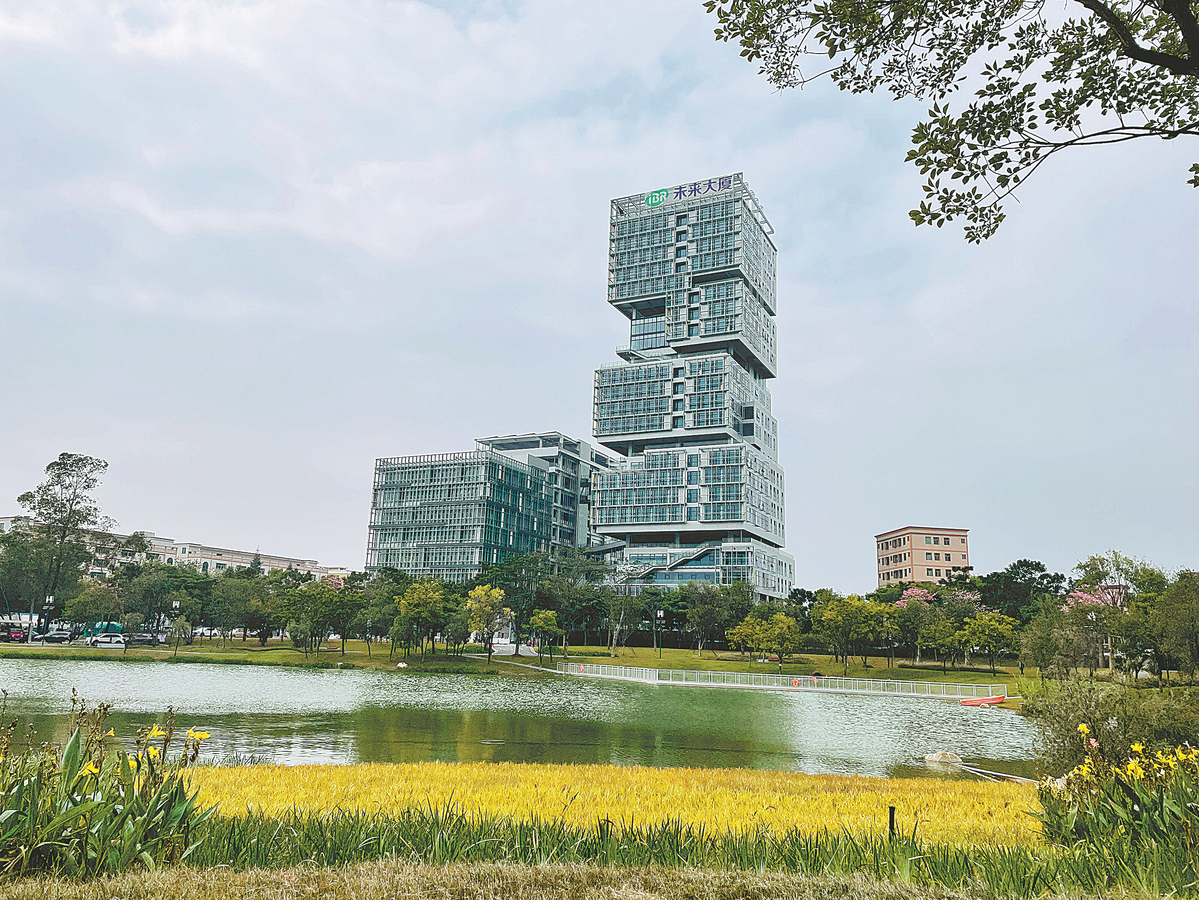China's green efforts to gain momentum
High-quality development promoted to accelerate transformation: Experts


Experts said China's efforts in promoting high-quality economic development and fostering new quality productive forces could further boost the nation's green transition.
Their comments came after the third plenary session of the 20th Central Committee of the Communist Party of China which concluded in July. The plenum's resolution described high-quality development as a "primary task "in building China into a modern socialist country in all respects, and identified fostering new quality productive forces as one of the key guidelines in achieving the goal.
Some detailed measures in the resolution include further developing new energy sectors soundly and orderly; encouraging companies to apply digital, intelligent, and green technologies to transform traditional industries; and imposing tighter institutional constraints for environmental protection, among others.
Following the closing of the plenum, China has also introduced a series of policies to accelerate the green transition, including the establishment of a dual control system that now prioritizes carbon emission reductions over the previous focus on energy consumption intensity and total energy consumption.
Muyi Yang, senior electricity policy analyst for China at Ember, an energy think tank headquartered in the United Kingdom, praised this trajectory for being "sustainable".
"By focusing on high-quality development, China aims to build an economy that is not only larger but also more sophisticated, efficient, and adaptable to future challenges, including climate change. This philosophy emphasizes the need to upgrade industries, foster technological innovation, and enhance productivity while minimizing environmental impact, thereby ensuring long-term prosperity and social well-being," he said.
Belinda Schaepe, China policy analyst at the Centre for Research on Energy and Clean Air, which is based in Helsinki, Finland, noted that China's continuous push for its new development path has already led to a boom in clean technologies.
"Clean energy was already the top driver of China's economic growth in 2023, contributing 40 percent of the GDP expansion," she said, quoting a research paper published by the center in January this year. "The heightened focus by the Chinese government on fostering new quality productive forces, including green technologies, will likely further drive production in this sector."
She said the growing volumes of affordable clean products in China could also help the global energy transition and the supply chains that need to be expanded worldwide.
"China's investment and production of green technologies were key drivers in bringing down international prices, accelerating the uptake worldwide," Schaepe said. "Chinese companies are already setting up new production facilities in other countries. They can contribute to diversifying supply chains and offering technology transfer, particularly with countries in the Global South."
Sustained focus
Meanwhile, China's sustained focus on green transformation has also driven some traditional energy-intensive industries to become cleaner, both experts pointed out.
Yang found out that both China's central and local state-owned enterprises in the electricity sector, while owning the majority of coal power assets in the country, have actively diversified into renewable energy, which significantly contributed to controlling the emissions by limiting coal consumption increase.
The steel sector saw no new permits for coal-based steel plants in the first half of 2024, signaling a shift toward cleaner production methods such as electric arc furnaces, Schaepe said.
"The record expansion of renewables capacity, coupled with saturation in the real estate sector and emission reductions from heavy industry, signals that China may already have seen a carbon emissions peak in 2023," she said.
Despite that, China's path to carbon neutrality can still be "long and winding", she admitted.
Schaepe called for ambitious, staged carbon reduction targets leading from peak to carbon neutrality, a clearer coal phase-down plan, and stronger support for grid flexibility and power market reform to integrate renewables.
Yang expressed hope that policy support for clean industries would remain on course, emphasizing the need for continued investment in research and development, creating new supply chains to deliver essential materials and components, and cultivating a new generation of skilled workers to support a decarbonized economy.

































